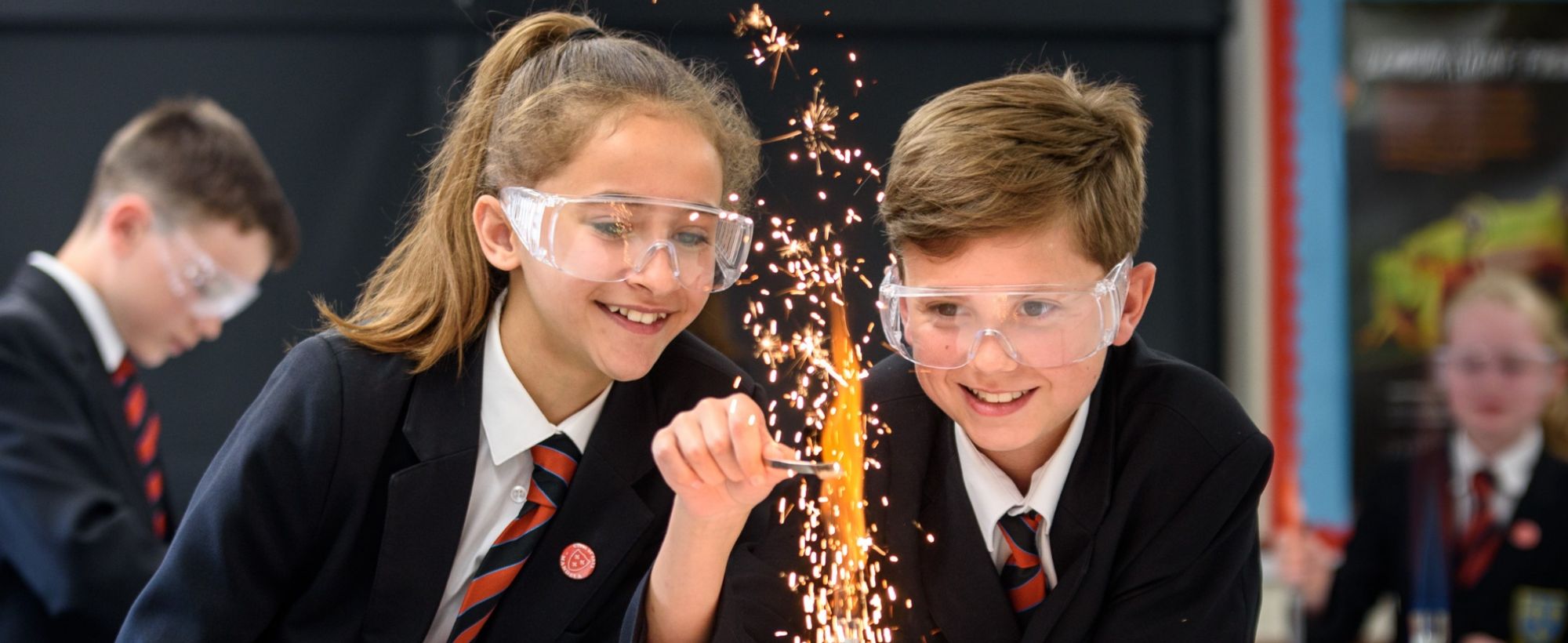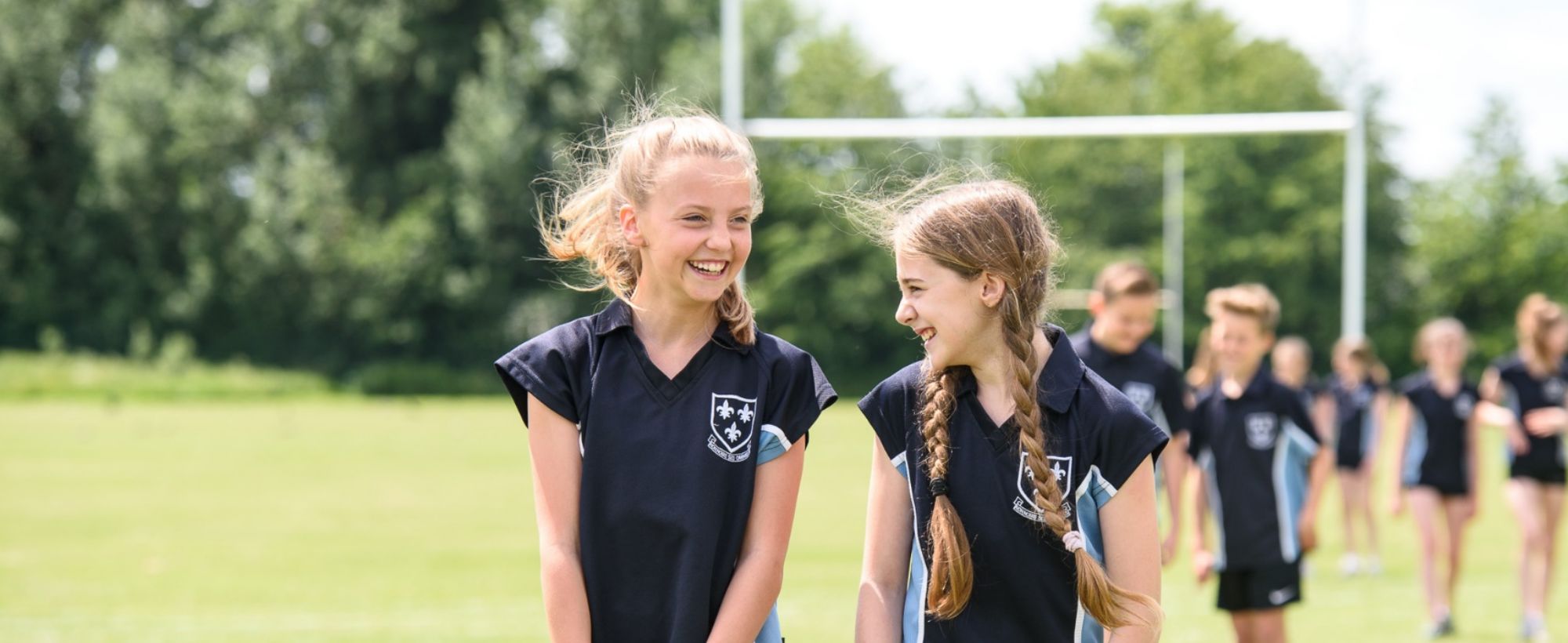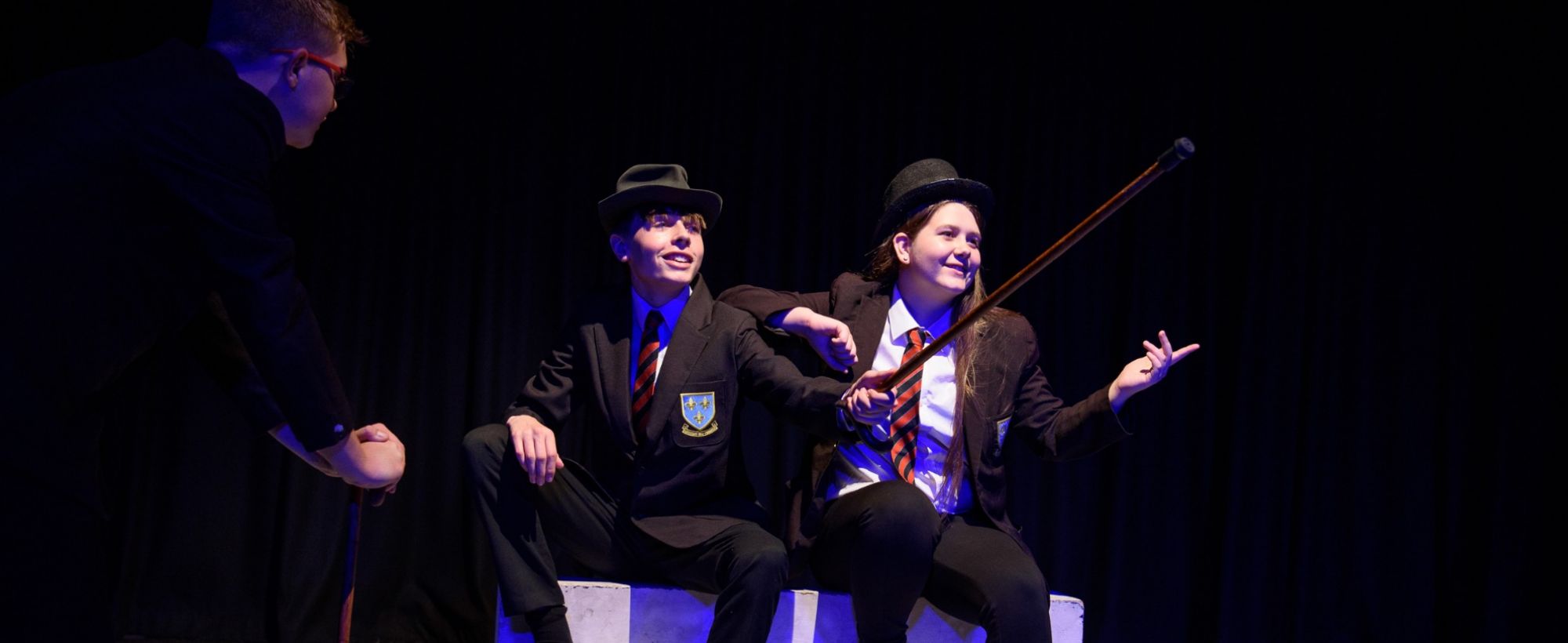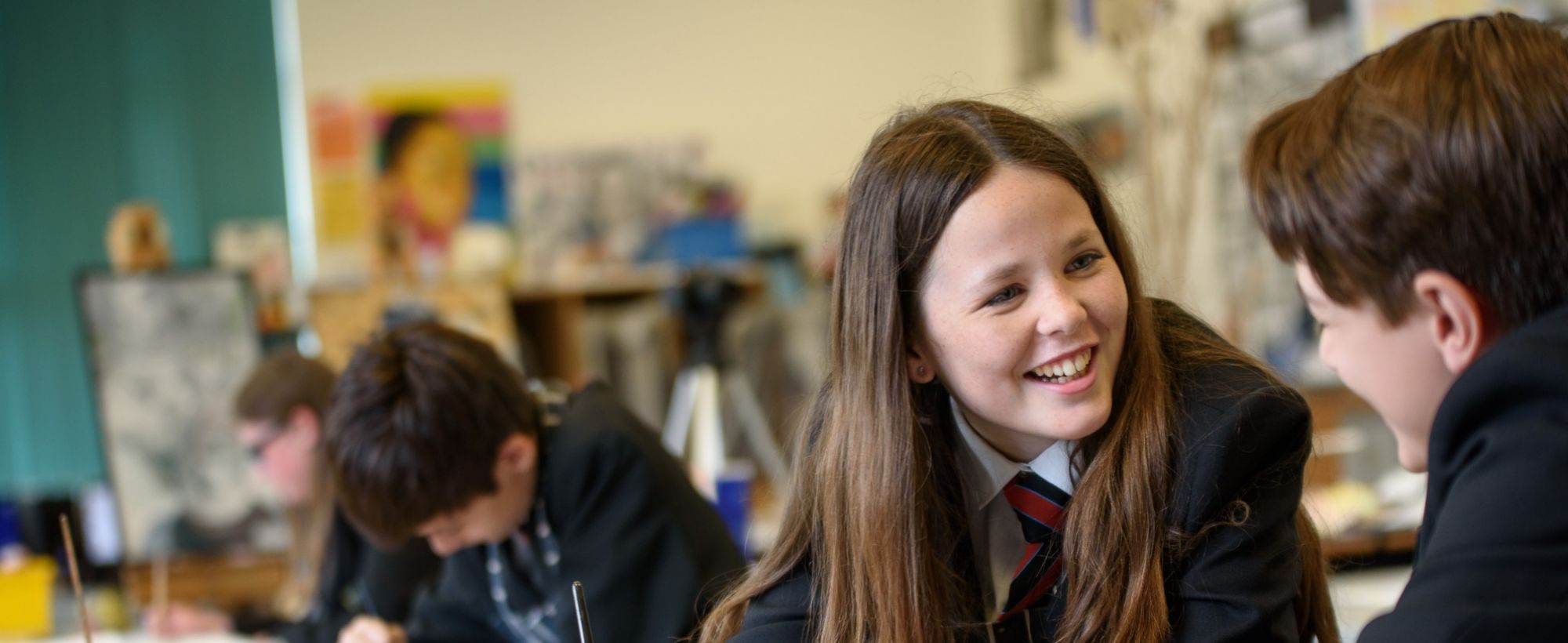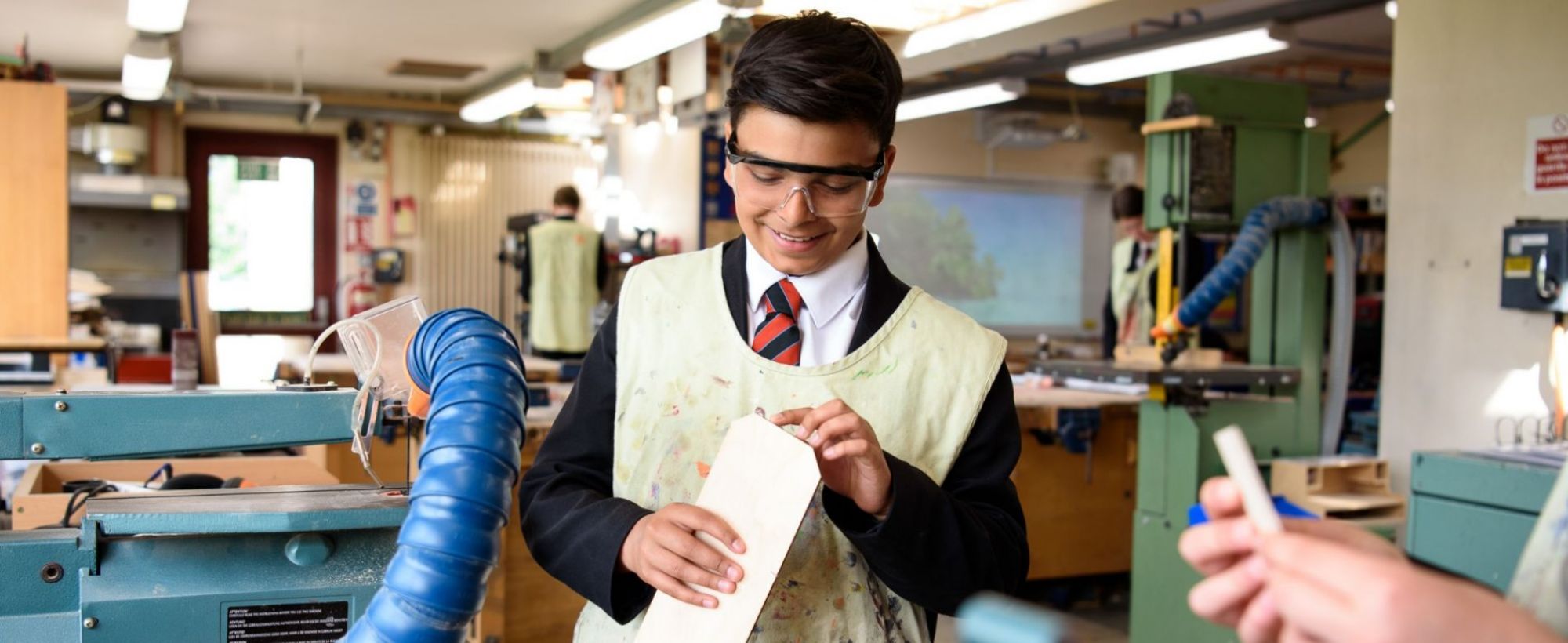RSE Statement
Introduction
Soham Village College believes that relationships and sex education makes an essential contribution to every student’s health, wellbeing and preparation for adult life in society.
The students in our school come from diverse backgrounds, expressing a spectrum of beliefs and values. Together with our Advisory Body, we have considered and developed a familiarity with the beliefs and attitudes which our range of families have about issues such as relationships and sex education, abortion, contraception, LGBT+ and sex outside marriage. We recognise that we need to educate and support young people to manage ‘real world’ interactions as well as those that happen in the online virtual environment. We are committed to responding to national trends and emerging issues such as those around mental wellbeing, consent, gender and sexual identity, online pornography, sexting, female genital mutilation and child sexual exploitation. These issues have a high profile within DfE guidelines in such documents as Keeping Safe in Education (September 2023) and form the motivation behind the statutory guidance published under the revised Relationships and Sex Education curriculum.
The stage of development and the experiences of any group of young people of the same age will be diverse and varied. This fact has clear implications for curriculum content, teaching approaches, and the creation of an appropriate learning environment based on the need to develop in young people respect for each other’s differences.
The school acknowledges the importance of its pastoral role in the welfare of young people, and through the general ethos of the school, will seek to persuade students in need of support to come forward.
Aim of RSE Education
The aims of relationships and sex education (RSE) at our school are to:
- Provide a framework in which sensitive discussions can take place
- Prepare pupils for puberty, and give them an understanding of sexual development and the importance of health and hygiene
- Help pupils develop feelings of self-respect, confidence and empathy
- Create a positive culture around issues of sexuality and relationship
- Teach pupils the correct vocabulary to describe themselves and their bodies
Statutory Requirements
As a secondary academy, we must provide RSE to all pupils under section 34 of the Children and Social Work Act 2017.
In teaching RSE, we’re required by our funding agreements to have regard to guidance issued by the secretary of state, as outlined in section 403 of the Education Act 1996.
We also have regard to legal duties set out in:
- Sections 406 and 407 of the Education Act 1996
- Part 6, chapter 1 of the Equality Act 2010
- The Public Sector Equality Duty (as set out in section 149 of the Equality Act 2010). This duty requires public bodies to have due regard to the need to eliminate discrimination, advance equality of opportunity and foster good relations between different people when carrying out their activities.
Definition
RSE is about the emotional, social and cultural development of pupils, and involves learning about relationships, sexual health, sexuality, healthy lifestyles, diversity and personal identity.
What is the moral and values framework of Relationships and Sex Education?
RSE is taught within and confirms the moral and values framework of the whole school. This draws on the statement of values by the National Forum for Values in Education and the Community contained within the National Curriculum.
- We value ourselves as unique human beings capable of spiritual, moral, intellectual and physical growth and development.
- We value others for themselves, not only for what they have or what they can do for us. We value relationships as fundamental to the development and fulfilment of ourselves and others, and to the good of the community.
- We value truth, freedom, justice, human rights, the rule of law and collective effort for the common good. In particular, we value families as a source of love and support for all their members, and as the basis of a society in which people care for others.
It is expected of teachers that their personal beliefs and attitudes will not influence their teaching of RSE. They will address students’ questions with due regard to the beliefs and values of the child’s family. The teaching of RSE respects and refers to the beliefs of the child’s home background. RSE is also part of the school’s provision for Spiritual, Moral, Social and Cultural development. It encourages each student to develop confidence and a clear awareness of their own beliefs and values and to develop mutual understanding and respect between students for their diverse beliefs and values.
How is Relationships and Sex Education organised?
Our RSE curriculum is set out as per Appendix 1 of the school's RSE policy, but we may need to adapt it as and when necessary.
We have developed the curriculum in consultation with parents, pupils and staff, and taking into account the age, developmental stage, needs and feelings of our pupils. If pupils ask questions outside the scope of this policy, teachers will respond in an appropriate manner so that pupils are fully informed and don’t seek answers online.
How does Relationships and Sex Education relate to equal opportunities?
The school’s policy for equal opportunities also underpins the teaching of RSE. Relationships and Sex Education can act as a basis for promoting equality between individuals and groups. It necessarily involves an exploration of human and social diversity, and a fostering of self-esteem and self-worth in a learning environment that recognises and respects difference. We work to ensure that our relationships and sex education is relevant and accessible to all our students, it is respectful of how students choose to identify themselves, and that it is appropriate for all levels of understanding and maturity. This means that relationships and sex education is sensitive to the different needs of individual students and may evolve and adapt over time.
How is Relationships and Sex Education taught?
RSE is taught within the personal, social, health and economic (PSHE) education curriculum. Biological aspects of RSE are taught within the science curriculum, and other aspects are included in religious education (RE).
RSE focuses on giving young people the information they need to help them develop healthy, nurturing relationships of all kinds including:
- Families
- Respectful relationships, including friendships
- Online and media
- Being safe
- Intimate and sexual relationships, including sexual health
For more information about our RSE curriculum, see Appendices 1 and 2 of the school's RSE policy.
These areas of learning are taught within the context of family life, taking care to make sure that there is no stigmatisation of children based on their home circumstances (families can include single parent families, LGBT parents, families headed by grandparents, adoptive parents and foster parents/carers, amongst other structures), along with reflecting sensitively that some children may have a different structure of support around them (for example, looked-after children or young carers).
We will also be mindful of the law and legal requirements, taking care not to condone or encourage illegal political activity, such as violent action against people, criminal damage to property, hate crime, terrorism or the illegal use of drugs.
Inclusivity
We will teach about these topics in a manner that:
- Considers how a diverse range of pupils will relate to them
- Is sensitive to all pupils’ experiences
- During lessons, makes pupils feel:
- Safe and supprted
- Able to engage with the key messages
We will also:
- Make sure that pupils learn about these topics in an environment that’s appropriate for them, for example in:
- A whole-class setting
- Small groups or targeted sessions
- 1-to-1 discussions
- Digital formats
- Give careful consideration to the level of differentiation needed
Use of resources
We will consider whether any resources we plan to use:
- Are aligned with the teaching requirements set out in the statutory RSE guidance
- Would support pupils in applying their knowledge in different contexts and settings
- Are age-appropriate, given the age, developmental stage and background of our pupils
- Are evidence-based and contain robust facts and statistics
- Fit into our curriculum plan
- Are from credible sources
- Are compatible with effective teaching approaches
- Are sensitive to pupils’ experiences and won’t provoke distress
Use of external resources
We will make sure that an agency and any materials used are appropriate and in line with our legal duties around political impartiality.
The school remains responsible for what is said to pupils. This includes making sure that any speakers, tools and resources used don’t undermine the fundamental British values of democracy, the rule of law, individual liberty, and mutual respect and tolerance of those with different faiths and beliefs.
We will:
- Make appropriate checks and engage with external agencies to make sure that their approach to teaching about RSE is balanced, and it and the resources they intend to use:
- Are age-apprpriate
- Are in line with pupils’ developmental stage
- Comply with:
- This policy
- The Teachers’ Standards
- The Equality Act 2010
- The Human Rights Act 1998
- The Education Act 1996
- Only work with external agencies where we have full confidence in the agency, its approach and the resources it uses
- Make sure that any speakers and resources meet the intended outcome of the relevant part of the curriculum
- Review any case study materials and look for feedback from other people the agency has worked with
- Be clear on:
- What they’re going to say
- Their position on the issues to be discussed
- Ask to see in advance any materials that the agency may use
- Know the named individuals who will be there, and follow our usual safeguarding procedures for these people
- Conduct a basic online search and address anything that may be of concern to us, or to parents and carers
- Check the agency’s protocol for taking pictures or using any personal data they might get from a session
- Remind teachers that they can say “no” or, in extreme cases, stop a session
- Make sure that the teacher is in the room during any sessions with external speakers
We won’t, under any circumstances:
- Work with external agencies that take or promote extreme political positions
- Use materials produced by such agencies, even if the material itself is not extreme
Right of withdrawal
Parents have the right to withdraw their children from the non-science components of sex education within RSE up to and until 3 terms before the child turns 16. After this point, if the child wishes to receive sex education rather than being withdrawn, the school will arrange this.
Requests for withdrawal should be put in writing using the form found in Appendix 3 of the school's RSE policy and addressed to the headteacher.
A copy of withdrawal requests will be placed in the pupil’s educational record. The headteacher will discuss the request with parents and take appropriate action.
Alternative school work will be given to pupils who are withdrawn from sex education.
Procedure for monitoring and evaluating
The Advisory Body will approve the RSE policy, and hold the headteacher to account for its implementation.
The headteacher is responsible for ensuring that RSE is taught consistently across the school, and for managing requests to withdraw pupils from non-science components of RSE (see section 9).
Staff are responsible for:
- Delivering RSE in a sensitive way
- Modelling positive attitudes to RSE
- Monitoring progress
- Responding to the needs of individual pupils
- Responding appropriately to pupils whose parents wish them to be withdrawn from the non-science components of RSE
Training
- Staff are trained on the delivery of RSE as part of their induction and it is included in our continuing professional development calendar.
- The headteacher will also invite visitors from outside the school, such as school nurses or sexual health professionals, to provide support and training to staff teaching RSE.
Monitoring arrangements
- The delivery of RSE is monitored by Mary Wilcox/Gary Heaney through:
- Planning scrutinys/learning walks
- Pupils’ development in RSE is monitored by class teachers as part of our internal assessment systems.
- This policy will be reviewed by Mary Wilcox, Assistant Headteacher, annually. At every review, the policy will be approved by the Advisory Body
Useful policies and references
Safeguarding and Child Protection Policy (Soham Village College, Autumn 2024)
Behaviour Policy (Soham Village College, Spring 2024)
ICT, Internet, Cyber Security and Acceptable Use policy (Staploe Education Trust, Summer 2024)
Relationships Education, Relationships and Sex Education (RSE) and Health Education (DfE, 2019)
Keeping Children Safe in Education (DfE, updated September 2024)
PSHE Association